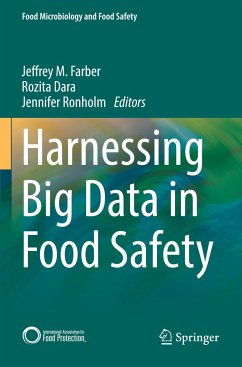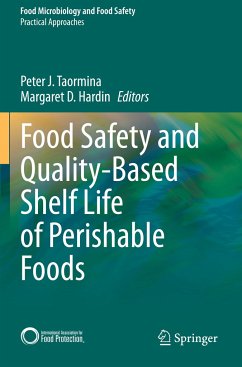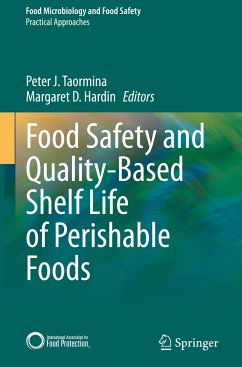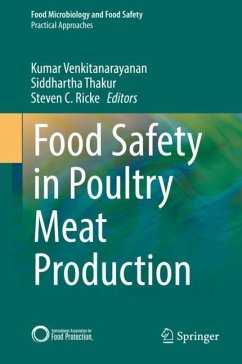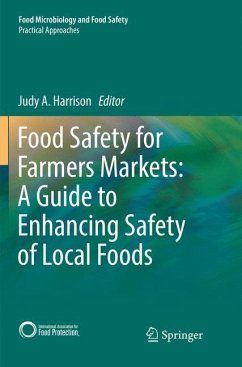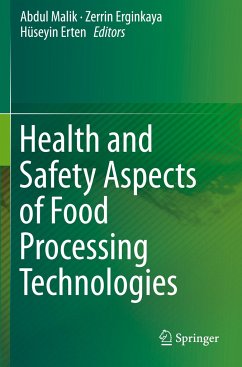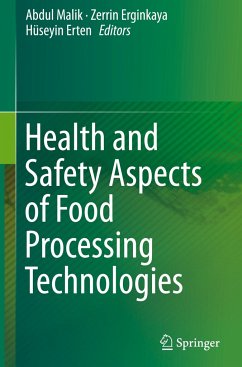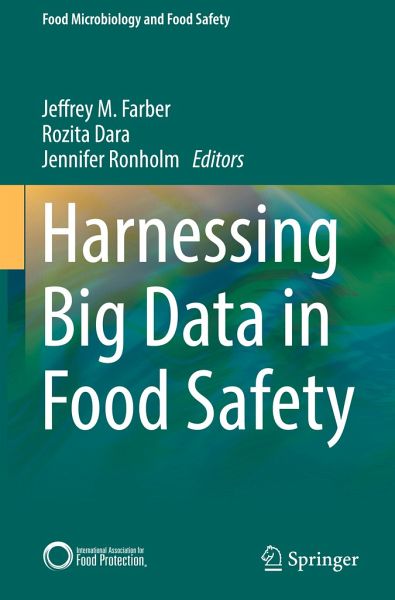
Harnessing Big Data in Food Safety

PAYBACK Punkte
65 °P sammeln!
Big Data technologies have the potential to revolutionize the agriculture sector, in particular food safety and quality practices. This book is designed to provide a foundational understanding of various applications of Big Data in Food Safety. Big Data requires the use of sophisticated approaches for cleaning, processing and extracting useful information to improve decision-making. The contributed volume reviews some of these approaches and algorithms in the context of real-world food safety studies.Food safety and quality related data are being generated in large volumes and from a variety o...
Big Data technologies have the potential to revolutionize the agriculture sector, in particular food safety and quality practices. This book is designed to provide a foundational understanding of various applications of Big Data in Food Safety. Big Data requires the use of sophisticated approaches for cleaning, processing and extracting useful information to improve decision-making. The contributed volume reviews some of these approaches and algorithms in the context of real-world food safety studies.
Food safety and quality related data are being generated in large volumes and from a variety of sources such as farms, processors, retailers, government organizations, and other industries. The editors have included examples of how big data can be used in the fields of bacteriology, virology and mycology to improve food safety. Additional chapters detail how the big data sources are aggregated and used in food safety and quality areas such as food spoilage and qualitydeterioration along the supply chain, food supply chain traceability, as well as policy and regulations. The volume also contains solutions to address standardization, data interoperability, and other data governance and data related technical challenges. Furthermore, this volume discusses how the application of machine-learning has successfully improved the speed and/or accuracy of many processes in the food supply chain, and also discusses some of the inherent challenges. Included in this volume as well is a practical example of the digital transformation that happened in Dubai, with a particular emphasis on how data is enabling better decision-making in food safety. To complete this volume, researchers discuss how although big data is and will continue to be a major disruptor in the area of food safety, it also raises some important questions with regards to issues such as security/privacy, data control and data governance, all of which must be carefully considered by governments and law makers.
Food safety and quality related data are being generated in large volumes and from a variety of sources such as farms, processors, retailers, government organizations, and other industries. The editors have included examples of how big data can be used in the fields of bacteriology, virology and mycology to improve food safety. Additional chapters detail how the big data sources are aggregated and used in food safety and quality areas such as food spoilage and qualitydeterioration along the supply chain, food supply chain traceability, as well as policy and regulations. The volume also contains solutions to address standardization, data interoperability, and other data governance and data related technical challenges. Furthermore, this volume discusses how the application of machine-learning has successfully improved the speed and/or accuracy of many processes in the food supply chain, and also discusses some of the inherent challenges. Included in this volume as well is a practical example of the digital transformation that happened in Dubai, with a particular emphasis on how data is enabling better decision-making in food safety. To complete this volume, researchers discuss how although big data is and will continue to be a major disruptor in the area of food safety, it also raises some important questions with regards to issues such as security/privacy, data control and data governance, all of which must be carefully considered by governments and law makers.



